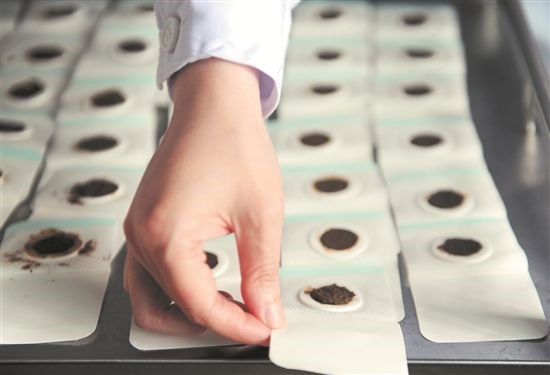The dog days of summer occur during the hottest and muggiest part of the season. As the weather is getting hotter, how to keep healthy in such sultry weather should be put high on the agenda. So, what can we do exactly to maintain a healthy body during blazing hot days, according to the principles of Traditional Chinese Medicine (TCM)?
1. Drinking water
TCM stresses the theory of Yin and Yang, in which winter indicates Yin while summer indicates Yang. As summer is when Yang flourishes and Yin declines, it’s also the time when Yang in our bodies emerges. And the Qi of freezing cold inside the body is easier to be relieved. In the dog days, people perspire heavily even if they just do a little exercise, followed by a raging thirst. Hence, drinking water is of uppermost priority in the dog days.

2. Eating sourer and sweeter food
The ancient scholars thought that summer heat made this time suitable for clearance and supplement. In the scorching summer, people love cool drinks and drink more, letting dampness invade the body. As the dampness comes from the external environment, it encumbers the spleen and causes ascending and descending of the spleen and stomach. As a result, it disturbs people’s digestion and causes swelling, characterized by a loss of appetite.

According to the Chinese regimen, summer heat is quite unfavorable to the spleen. While bitter food has the function of alleviating dryness, it’s inadvisable to eat too much of it. So, a moderate amount of cold or cool sweet food in the daily diet is appropriate. In addition, as people need to calm down in summer, our hearts favor coolness and sour food is advisable. So, food which is sourer, like pineapples and lemons are appropriate.
3. Tonifying Qi and reducing internal heat
What scorching summer brings us is not only uncomfortable physical feelings, but also an excess of internal heat, making people fidgety, anxious, emotional and insomnious. The scientific medical term for these symptoms is “summer affective disorder”.

Therefore, reducing internal heat is also essential in the concept of tonic food. The best foods to eliminate the fire-evil are bitter gourds, tomatoes and other cool fruits and vegetables with the function of clearing summer-heat. Meanwhile, milk is also a good choice as it is slightly cold and can supply water, nourish Yin and remove heat toxin. Duck is also helpful in tonifying human body.
4. Having fresh and clean food
Chinese medicine theory states that the stomach is the foundation of acquired constitution. In summer, we might eat some fresh fruits and vegetables when we lose appetite as our spleen and stomach work slower. The nutrients of these foods are normally composed of fiber and sugar in half, of which the refreshing feature ensures that we eat enough, as well as gaining sufficient energy and water.
Apart from the above four methods, Sanfutie, (or Sanfu medicinal patch), a bandage made of traditional Chinese herbal medicine, is also regarded as a solution for winter ills in summer. It is all the rage now with impressive sales. But we should remember that Sanfutie is not a magic cure-all, and whether we can receive its benefits depends on our own health condition. Besides, moxibustion is also popular in beauty salons now.

After learning the tips listed above, let’s take a look at what the “dog days” are.
The dog days in 2019 last 30 days, starting from 18 July to 17 August. The reason of the dog days being the hottest period is that the surface heat still accumulates after the Summer Solstice with the longest daytime, until it reaches the peak.
The dog days start on the third day of Geng (the 7th of the ten Heavenly Stems) after the Summer Solstice between the Minor Heat and the Major Heat. As the ancient designated time by the Chinese sexagenary cycle and the day of Geng appears every ten days, the difference of the day every year results in a different beginning of the dog days.
So, why did the ancient Chinese use the term “Fu” (Chinese equivalent of “the dog days”) to indicate the hottest period in a year? Because it embodied their understanding of the way people get along with the nature. “Fu” has the meaning of the autumn being dormant in the hot summer and Yin lurking under the ground forced by Yang, as well as the weather being too hot for people to move around.
